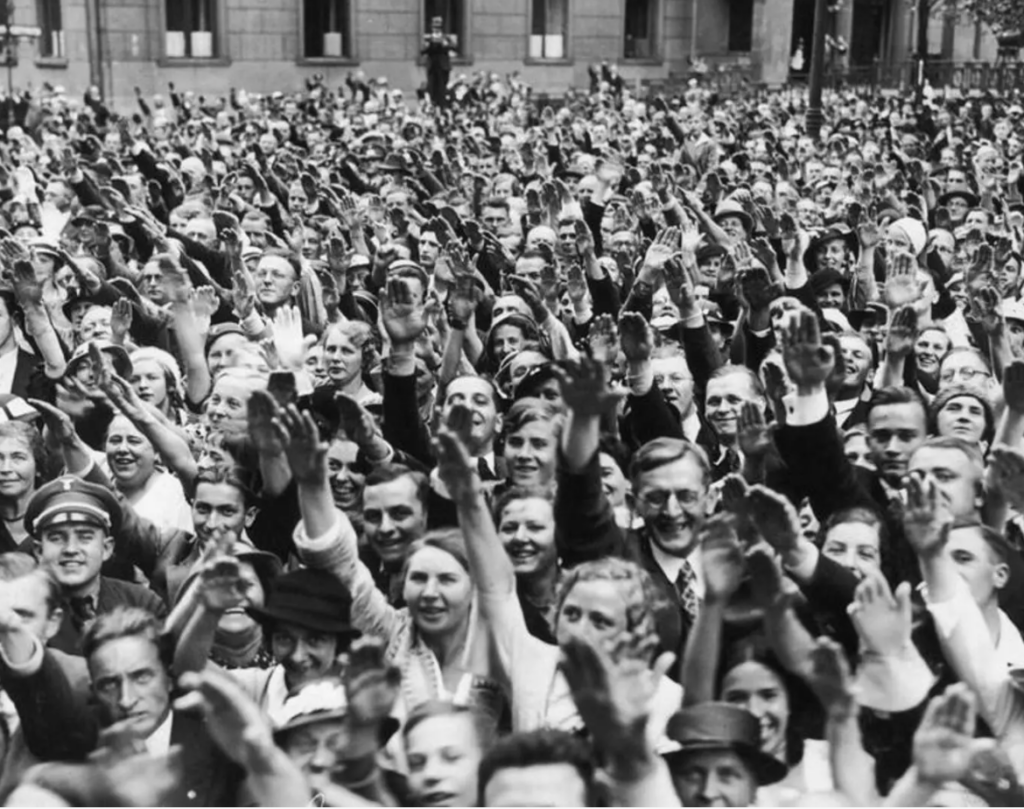
Introduction
Hitler’s People: The Faces of the Third Reich, released by Waldemar Heckel on August 13, 2024, explores Nazi Germany through the eyes of ordinary Germans. Through detailed character portrayal and analysis of moral dilemmas, Heckel shows how individuals made choices under the dual pressures of moral responsibility and social control. This review will evaluate the book’s unique value and contributions based on these key themes.
Title and Author
Title: Hitler’s People: The Faces of the Third Reich
Author: Richard J. Evans
Publication Date: August 13, 2024
Category: History
Nazi Ideology’s Penetration and Social Control
Heckel thoroughly explores how Nazi ideology infiltrated ordinary Germans’ lives through propaganda, education, and social control. During the Third Reich, Hitler and his followers used powerful propaganda to instill extreme racist and nationalist ideas in the German people. Heckel’s analysis shows how Nazi ideology became a social norm, making compliance a common behavior among ordinary citizens.
The book describes how school education, union activities, and media reports were used by the Nazis to diminish critical thinking among ordinary Germans. As a result, these citizens became supporters of the regime. Through these social control measures, the Nazi regime not only strengthened its power but also further entrenched the foundations of totalitarianism, reducing tolerance for dissent.
Obedience and Resistance: The Complexity of Human Nature
Heckel vividly portrays how ordinary Germans reacted differently to the Nazi regime. Some characters choose obedience under social pressure, while others choose resistance in extreme environments. Heckel shows how individuals made choices between compliance and resistance under totalitarian pressure, revealing the complexity of human nature behind these decisions.
For example, one worker eventually complied with the Nazi union’s demands, despite not agreeing with Nazi policies. Another example is an intellectual who resisted the Nazis in secret, even though his efforts seemed insignificant under overwhelming political pressure. Heckel explores how individuals faced moral dilemmas and the impact of these choices on themselves and society.

Moral Dilemmas and Political Ethics
Hitler’s People is more than a historical narrative; it is a profound reflection on moral dilemmas and political ethics. Heckel uses the stories of ordinary Germans to explore how individuals face moral choices and bear moral responsibility under a totalitarian regime. These choices reflect their personal moral values and show how they navigated difficult decisions between compliance and resistance under intense social and political pressure.
Heckel emphasizes the complexity of moral responsibility under a totalitarian regime. Many ordinary Germans faced deep moral dilemmas under the Nazi regime. They had to choose between obeying the regime and upholding moral principles, a choice often accompanied by great personal risk and social pressure. Some characters in the book sought compromise to avoid direct confrontation with the Nazis, but this often led to indirect support for totalitarianism.
Human Nature’s Test Under Totalitarianism
Heckel reflects on Nazi Germany to reveal the vulnerability and resilience of human nature under totalitarianism. Through the experiences of ordinary Germans, the book shows how human nature was tested under the pressure, fear, and temptation of the Third Reich. Heckel does not simply depict these characters as victims or perpetrators. Instead, he shows their moral struggles and internal conflicts in extreme conditions.
The characters in the book not only display the complexity of human nature but also reveal how totalitarianism eroded individual moral defenses through fear and temptation. Heckel’s stories remind us that the distortion and corruption of human nature by totalitarianism is often subtle. Once this distortion occurs, it leads to an irreversible collapse of society and morality.
Conclusion: Reflecting on Nazi Germany’s Lessons
Hitler’s People: The Faces of the Third Reich offers a deep reflection on the workings of the Nazi regime and its impact on human nature and morality. Waldemar Heckel uses detailed narration and deep analysis to show how Nazi totalitarianism controlled society through social control, ideological penetration, and manipulation of individual choices. This book provides a deeper understanding of Nazi Germany’s history and offers valuable insights into how we should respond to totalitarianism and moral dilemmas in modern society.
Rating: 5/5
Further Reading
《The Origins of Totalitarianism》 by Hannah Arendt: Explores the origins and social impact of totalitarianism.
《Ordinary Men》 by Christopher R. Browning: Examines how ordinary people were drawn into atrocities under totalitarianism.
《They Thought They Were Free》 by Milton Mayer: Reveals ordinary Germans’ reactions and memories of the Nazi regime through post-war interviews.




